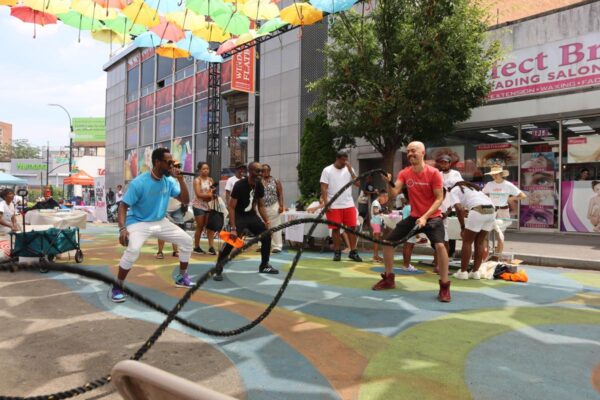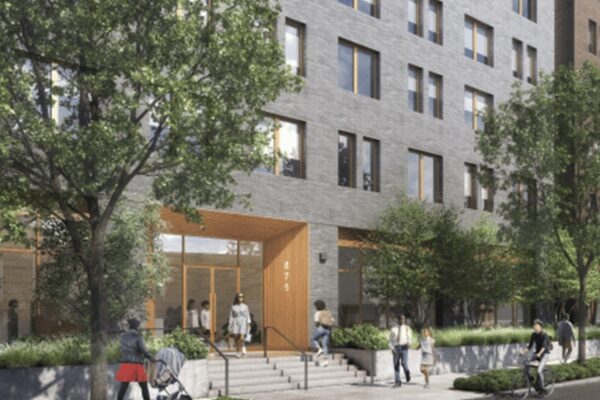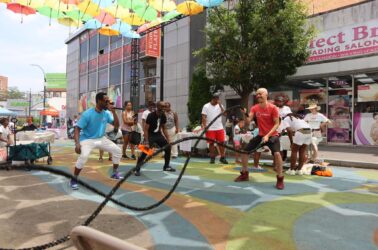Courtesy The Kingsman Journal
Continued bad legislation by NYC Council Members taking its toll on hard working New Yorkers who are trying to make ends meet. This bad legislation will follow Council Members as they try to move up the political ladder, if they are not brave enough to battle the billion-dollar hotel industry lobbyists.
The story of Airbnb’s rapid rise over the last decade is one of revolutionary transformation within the global travel and tourism sector. At the heart of this phenomenon, New York City stood as a pivotal player. The allure of the Big Apple drew millions of international tourists yearly, and Airbnb emerged as a popular accommodation choice. Yet, the recent “Airbnb ban” in NYC has illuminated the unintended consequences of such legislative actions, exposing a system that, ironically, favors the wealthy elite while undermining the financial stability of smaller homeowners.
Local Law 18’s enforcement on September 5th was an attempt to curtail what many saw as the unchecked spread of short-term rentals. Almost 11,000 Airbnb listings vanished seemingly overnight, leaving in their wake a void that the tourism sector is struggling to navigate. While the move was initially hailed as a victory against illegal short-term rentals, the ensuing consequences have shown that perhaps Airbnb wasn’t the real villain after all. With tourism figures in sharp decline and hotel rates skyrocketing, the consensus among many New Yorkers appears to be shifting.
As the number of affordable Airbnb listings dwindled, a new breed of short-term rental hosts emerged: the ultra-wealthy. Residential buildings classified as “class B” multiple dwellings, which the city of New York has approved for legal short-term occupancies, have gained the upper hand. They can now rent out luxurious suites at exorbitant prices, with some even going for as much as $30,000 per night. In stark contrast, middle-class homeowners, previously reliant on the additional income from renting out their homes on platforms like Airbnb and VRBO, now mostly find themselves facing fines up to $5000 for welcoming guests into their units that are considered “illegal” under the law, leaving them in a financial quagmire. These homeowners, who once relied on the supplementary income from Airbnb to stay afloat in one of the world’s most expensive cities, now find themselves grappling with a system that seems designed to exclude them at all costs.
Tony Lindsay, president of New York Homeowners Alliance Corp., sheds light on this paradox. According to Lindsay, Local Law 18 isn’t the main issue; rather, the outdated Housing Maintenance Code (HMC) that unfairly categorizes one- and two- family private homes with hotels and apartment buildings is the real culprit.
“Local Law 18 has been problematic legislation, to say the least,” says Lindsay. “The real problem is the existing local Housing Maintenance Code that was used to unfairly yank one- and two- family private homeowners into an enforcement apparatus that was designed for hotels and apartment buildings subject to New York State multiple dwelling laws. The HMC standards are outdated and need to be revised. However, it must be done using different considerations from the state multiple dwelling laws because many of the safety standards that were used to justify and craft the MDL simply don’t apply to smaller private residences.”
One of the main objectives of Local Law 18 was to preserve NYC’s housing stock. However, Lindsay argues that the true housing stock is not in the hands of one- and two- family homeowners but in the reported 40,000 warehoused rent-stabilized units across NYC and the thousands of apartments that were being leased by investors (and offered by multiple dwelling owners) for the sole purpose of Airbnb arbitrage. Surveys conducted among small homeowners reveal a staggering reality: nearly 90% of them have no plans to offer their units for long-term rentals, even after the ban, largely because the financial returns from a single long-term tenant are meager, especially given NYC’s skyrocketing living costs.
Moreover, with NYC’s decidedly tenant-friendly laws, the prospect of becoming a landlord is fraught with risks. A non-cooperative or non-paying tenant can quickly lead to financial ruin for a small homeowner. Lindsay’s organization seeks to address this imbalance and provide avenues for homeowners, particularly those from minority communities who have borne the brunt of the Local Law 18 enforcement from the Mayor’s Office of Special Enforcement (OSE), which currently has approved only 481 STR applications citywide to date.
Lobbying groups, supposedly championing the rights of marginalized communities, have been accused of pushing for this legislation based on skewed data. Lindsay was forthright in his criticism. “Groups like the Coalition Against Illegal Hotels, that had a hand in drafting L.L.18, presented manipulated data and misleading reports while hiding behind the facade of advocacy. Their real agenda? Serving the hotel industry’s interests.” Adding weight to this accusation, New York Homeowners Alliance Corp. (NYHOA) dispatched a citywide memo to the NYC City Council on September 26th of this year. This communication was a direct rebuttal to a memo released two weeks earlier by the Coalition Against Illegal Hotels, wherein they attempted to sway the Council to dismiss the concerns of smaller homeowners advocating for equity.
So, what’s the way forward? Lindsay and other advocates believe that a more nuanced approach to short-term rentals is the solution. “All we want is for our rights to be respected and protected as private homeowners. That’s it,” Lindsay emphasized. But the ripple effects of Local Law 18 are already being felt, especially in the outer boroughs of NYC. Local businesses that once thrived on the influx of Airbnb tourists are witnessing a decline. In City Council districts predominantly inhabited by people of color, there’s a discernible rise in lis pendens and foreclosure filings. As the pool of options for small homeowners continues to get smaller, it’s imperative that Mayor Adams and the City Council refrain from removing yet another crucial lifeline.
As the debate rages on, it’s essential to reevaluate the true implications of such regulations. Short term rentals played a major role in drawing tourists to neighborhoods previously overlooked, thus fueling their local economies. While the need for safe and legal lodging is undeniable, the current approach appears skewed, marginalizing the very people the law purported to assist. Local Law 18, though initiated with the best of intentions, is proving to be a textbook case of good ideas leading to bad unintended consequences. We don’t need blanket bans and regulations, but comprehensive legislation that levels the playing field for all homeowners, ensuring the preservation of a strong middle-class and a vibrant tourism industry that remains accessible for everyone.
RELATED NEWS
See The List Of NYC Lawmakers Who Waged War On Homeowners In Favor Of Hotel Lobbyists





















